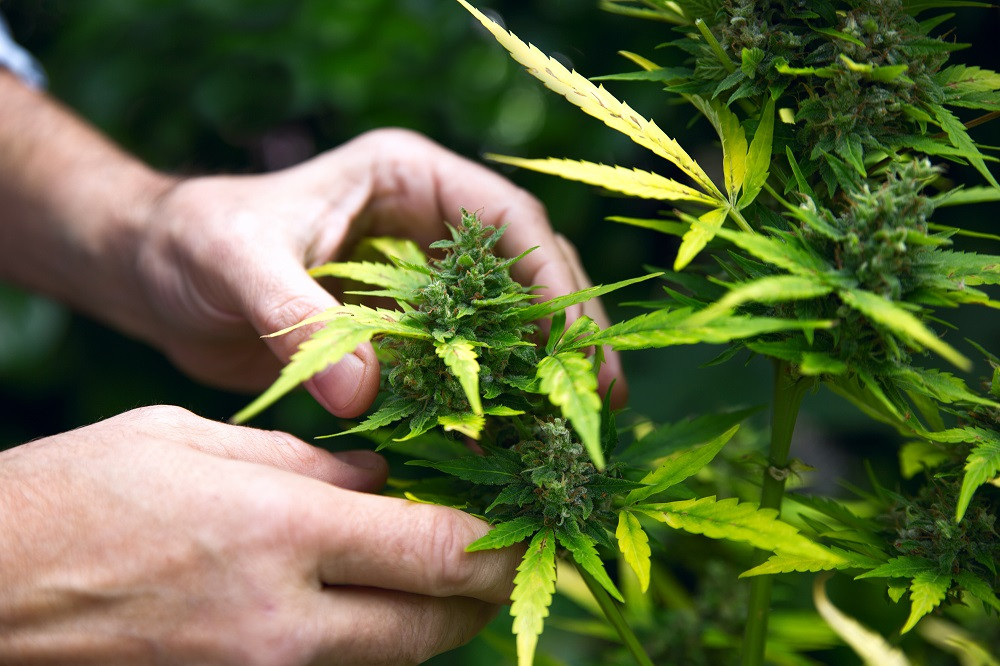Popular Reads
Top Results
Can't find what you're looking for?
View all search resultsPopular Reads
Top Results
Can't find what you're looking for?
View all search resultsUp in smoke: Ministry to revoke cannabis’ designation as ‘medicinal plant’
Agriculture Minister Syahrul Yasin Limpo has committed to “eradicate drug abuse”.
Change text size
Gift Premium Articles
to Anyone
T
he Agriculture Ministry will revise a 2020 ministerial decree that lists marijuana as a “medicinal plant” under the ministry’s supervision.
Signed on Feb. 3, the decree includes marijuana (Cannabis sativa) as one of 66 medicinal plants whose production is under the supervision of the ministry’s horticulture directorate general.
The decree went viral on Friday after the Nusantara Marijuana Network (LGN) posted a photo of the document on its Instagram account, @lgn_id.
The ministry responded that it would revise the decree because of Agriculture Minister Syahrul Yasin Limpo’s commitment to “eradicate drug abuse”.
“The decree will be revised soon, after we coordinate with the National Narcotics Agency [BNN], the Health Ministry and the Indonesian Institute of Sciences [LIPI],” the ministry’s vegetable and medicinal plant director, Tommy Nugraha, said in a statement on Saturday.
He added that marijuana had been listed as a medicinal plant since 2006 because the ministry wanted to help marijuana farmers shift to growing other crops.
“Marijuana’s inclusion on the medicinal plant list means that it can only be used for research, as stipulated in Article 67 of Law No. 13/2020 on horticulture. Currently, we record no legal marijuana farmers in Indonesia,” Tommy added.
Read also: 420 blaze it? Here’s what you need to know about Indonesia’s marijuana law
Marijuana is illegal in Indonesia. The 2009 Narcotics Law includes the plant as a type-1 narcotic, alongside opium and cocaine, meaning it is forbidden for both recreational and medicinal use.
The country’s stringent anti-cannabis enforcement has resulted in the arrests of several people, including Reyndhart Siahaan in East Nusa Tenggara. He was arrested for allegedly using marijuana, which he said relieved the pain caused by a spinal cord disease. The court later declared him guilty and sentenced him to 10 months' imprisonment.
Numerous studies have indicated the effectiveness of cannabidiol (CBD), one of the plant’s active ingredients, as a medication. Peter Grinspoon of Harvard Medical School wrote that CBD could be used to treat pain, epilepsy, seizures, anxiety and insomnia.
The LGN has been pushing for a revision of the Narcotics Law and the legalization of marijuana for medicinal use since 2010.
During Reyndhart’s trial, civil society groups filed an amicus brief — offered by someone who is not party to a case — in favor of the
use of marijuana for medicinal purposes.
The brief was drafted by the Institute for Criminal Justice Reform (ICJR), the Research and Advocacy Institute of Court Independence
(LeIP), Indonesian Judicial Research Society (IJRS) and the Community Legal Aid Institute (LBH Masyarakat).
Reynhardt’s legal team claimed its client had used marijuana as alternative medication to treat spinal cord compression. He reportedly
found that drinking boiled cannabis water could help ease the pain.
In the amicus brief, the groups urged the court to consider Reyndhart’s medical history, saying that the use of marijuana to ease
recurring pain should not be criminalized.
“The Constitution is the highest form of law in the country; thus, Reyndhart’s need for medication should be provided by the state.
Therefore, judges should be able to explore the value of justice in this case, as there is no need to convict people fighting with illness.”
The groups further argued the Reyndhart’s case could be categorized as an emergency as he was treating an illness. Article 48 of the
Criminal Code stipulates a restriction on charging people who commit a criminal offense in an emergency.










